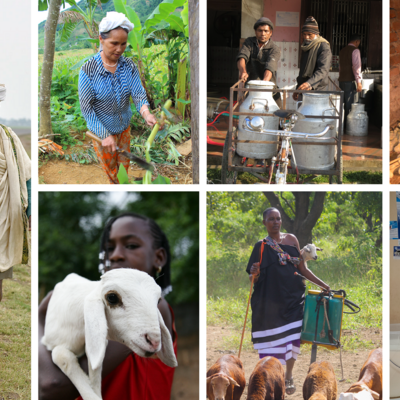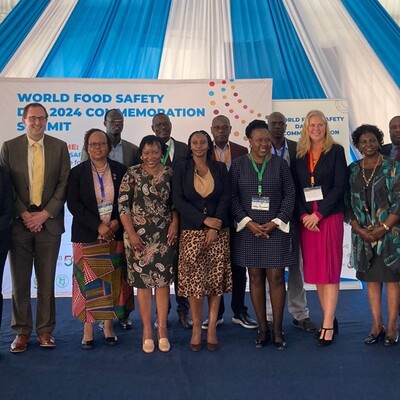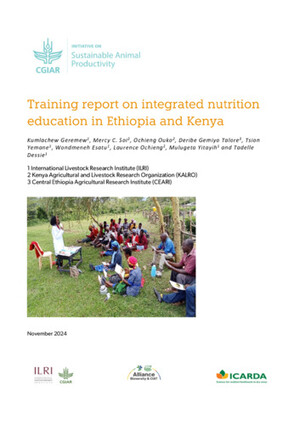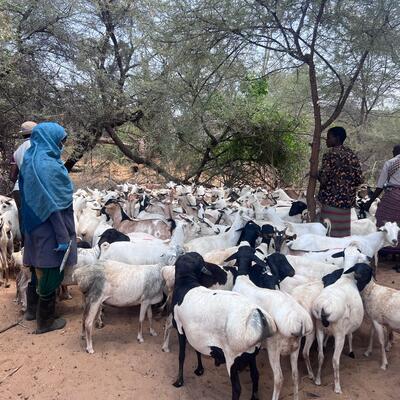
Milk and animal source foods can help turn the tide on malnutrition for children in Rwanda

Photo ILRI/Jean Bizimana
Ugirumurera Claudine, a Community Health Worker, walks to Karucuranya Village, Nyabihu district in northwest Rwanda. She teaches nutrition awareness to families in the area, along with messages on hygiene and sharing responsibilities at home.

Photo ILRI/Jean Bizimana
Claudine uses nutritional materials designed to encourage families to consume more milk and animal source foods, especially for small children and pregnant and nursing mothers.

Photo ILRI/Jean Bizimana
Parents who received nutrition education from community health workers in Karucuranya Village, Nyabihu district in Rwanda now boil milk for their children, which is safer than raw milk.

Photo ILRI/Jean Bizimana
Community Health Worker, Claudine, weighs Seraphine's daughter as part of efforts to monitor the impact of the nutrition education, which focuses on the importance of consuming milk and animal source foods.

Photo ILRI/Jean Bizimana
Munyaneza Ildephonse, a farmer, is assisted by his daughter after milking his cow. He used to store milk in jerry cans but learned from the community health worker to use stainless steel containers, which are more hygienic.

Photo ILRI/Jean Bizimana
Idelphonse's wife, Mukashyaka Francine, boils milk. "Before, I thought that there was no problem in giving my children raw milk. I learned from the community health worker that milk contains microbes that can cause certain diseases in my children.”

Photo ILRI/Jean Bizimana
Sharing a family meal. "Previously, we didn’t feed our children eggs. All the eggs are brought to market to be sold. The same for milk. But nowadays when we find money, we think about buying meat and feeding it to our children.” - Ildephonse

Photo ILRI/Jean Bizimana
“My hope is that my children will grow up well and healthy thanks to the nutrition they receive and it will help them to succeed in school and become great people and have a better future.” — Francine

Photo ILRI/Jean Bizimana
Francine and Ildephonse's son, Alpha, drinks boiled milk. As part of the nutrition messaging, families are encouraged to keep some eggs and milk from their livestock for their children.

Photo ILRI/Jean Bizimana
Community health workers also teach nutrition awareness to children who are old enough, to help them understand the importance of a balanced diet so that they, too, can learn to make healthy choices about what they eat.




















